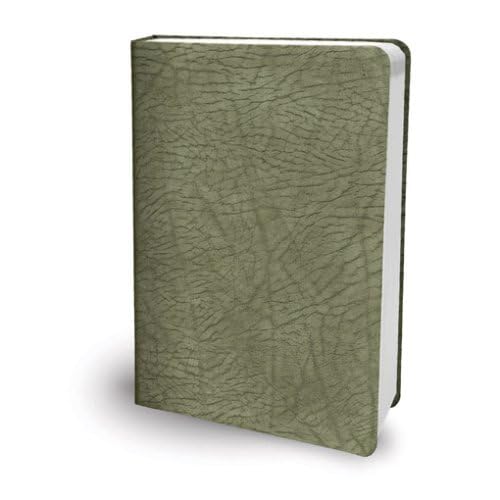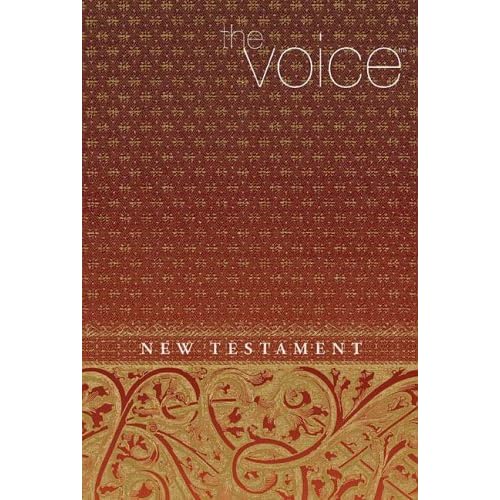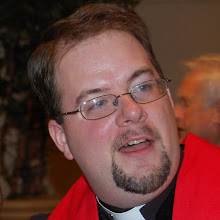Monday, August 24, 2009
Wesley Week!
Wesley Week kicks off today, with something to do each day of the week. If you join us on Wed, Thurs, or Fri...get a free t-shirt!
MUSIC MONDAY -- Come and jam with us, bring your instrument and join in, or just hang out and listen. 11:30a-1p
TASTY TUESDAY -- Free lunch begins! 11a-1p
WORSHIP WEDNESDAY -- Take a midweek break to worship with us at 12:30p
THIRSTY THURSDAY -- Come sample one of our many NEW coffee flavors, or enjoy apple cider, hot chocolate, water, and coke from 1p-3p
FLOAT FRIDAY -- Come float on the river with us while enjoying an ice cream float. Meet at the Wesley to carpool at 4p. We'll finish on the river around 6p, so bring some cash to have dinner on the way back.
SMALL GROUP signup is this week and next week, with groups beginning the week after Labor Day. Look for a signup sheet.
THE WESLEY is located between Cardinal Village III & the Dining Hall--see you this week!
Thursday, August 13, 2009
Fall 2009 begins in a week!
To all our students & supporters:
The new academic year begins shortly! New students move in a week from today, then the returning students, and classes get started on Monday 8/24. We'd like to share with you a few ways to help.
First, please pray! Pray for the new students who are coming to college and leaving their old lives behind; pray for the returning ones who are looking to make progress in their education. Pray for faculty, staff, and administrators who are working to ensure students can grow in knowledge. Pray for the Wesley to connect heads, hearts, and hands for God's kingdom. Pray for the Holy Spirit to guide and empower us all.
Second, if you are a student, please commit to participating in the ministry of the Wesley. If you're returning, you can join us at 8 am in the Cardinal Village parking lot to help move in new students. And everyone is invited to come to one of our daily "first week" events. We'll also be signing up for small groups that'll begin after Labor Day.
2.5: If you aren't a student (pastors, congregation members, etc.), please encourage those you know to be involved in the Wesley Student Center (or a campus ministry wherever they're going to school). Pastors will get more information about the Wesley at our District Preachers' Meeting on the 20th.
Finally, it takes many resources to feed, equip, disciple, assist in the event of a crisis, and deploy students for ministry. If you will answer your baptismal calling by dedicating your prayers, your presence, your gifts, your service, and/or your witness to the work that Jesus Christ is doing at the Wesley, please call Josh at 409.880.7252.
May God richly bless us through this season ahead!
Grace and Peace,
Josh+
Wednesday, July 29, 2009
FairTrade Coffee!
- direct purchasing from to those who are poorly served by the conventional markets, specifically small farmers and their cooperatives
- agreed upon commodity floor prices that provide for a dignified livelihood
- a promise by importers to make affordable credit available to the farmer cooperatives
- a world-wide network of non-profit certifying organizations
- a fee paid by the importers and wholesalers to cover the cost of certification
- a seal that assures consumers that a product was fairly traded
 In other words, buying fairtrade products ensures that the people who grow and harvest crops receive an equitable price for what they produce, and aren't handcuffed by larger corporations and middlemen.
In other words, buying fairtrade products ensures that the people who grow and harvest crops receive an equitable price for what they produce, and aren't handcuffed by larger corporations and middlemen.We've chosen Equal Exchange as the source of our coffee because of their great service, commitment to developing a more just food economy, and their relationship with the United Methodist Committee on Relief's (UMCOR) Coffee Project.
Interested in Equal Exchange's fairtrade coffee & other products for your church or campus ministry? Visit their interfaith store to learn more and order online. And the next time you're on campus, join us for a delicious and...and more just!...cup of coffee. It's on the house.
Wednesday, July 01, 2009
What Bible Should I Use?
Let's tackle the translation issue first. For a study bible, a solid committee translation like the NRSV or NIV is best, unless you're going to be reading in the original Hebrew & Greek. My personal preference, and that of many congregations & denominations, is the New Revised Standard Version, which renders the original tenses as plural (in many cases, these get incorrectly translated as singular), and also uses inclusive language for groups of people (believers or brothers and sisters instead of brothers, etc).
In terms of study notes, you want to make sure that the notes don't do your work for you: in other words, they shouldn't tell you what the passage means. That's between you, your community of faith, and the Holy Spirit. They should, however, help you understand the passage better so that you can make the most informed interpretation possible.
Now, here are a few of my recommendations for study bibles, and after that we'll talk Bibles for personal devotional usage. Without further ado, I bring you:
 The Renovare Spiritual Formation Bible (Amazon link)
The Renovare Spiritual Formation Bible (Amazon link)I just picked this one up recently, and it isn't your standard-issue study Bible. Sure, it has plenty of notes and commentary, but also has connections between passages and spiritual practices, and raises the formational question alongside the informational one. The RSFB is brought to you by the same folks who put together a lot of high-quality spiritual formation material, including Richard Foster. (NRSV)
 The Wesley Study Bible (Amazon link)
The Wesley Study Bible (Amazon link)Or soon to be known as "This is how I will get through my seminary degree & the ordination process" Bible for Methodists :) The focus of the WSB is on Methodist/Wesleyan theological perspectives and their Biblical roots, and rely on John Wesley's sermons, notes, and other writings (with the occasional Charles Wesley hymn). I've found it to be a solid study Bible, and the pull-out boxes with reflections on key theological concepts to be a great bonus! (NRSV)
 The New Interpreter's Study Bible (Amazon link)
The New Interpreter's Study Bible (Amazon link)My preaching Bible. I used to use the HarperCollins Study Bible, but after some looking into the newest revision of that project, I was given the very sound recommendation to use the NISB. From the same project that brought the monstrous 12-volume commentary New Interpreter's Bible, the NISB has much of the same perspective, just written for a standard sized study Bible. The commentary on Matthew, for instance, contrasts the Roman and earthly empires with God's empire (kingdom) for some provocative and challenging insights. (NRSV)
 The NIV Study Bible (Amazon link)
The NIV Study Bible (Amazon link)I don't own this one personally, but my father has used it for probably 20 years now, teaching his Sunday School class from it, and he swears by it. Clearly this is a new edition so we can't speak to the revised notes, but if they're consistent with the original, then it is an excellent study bible if you, like many of today's churchgoers, prefer the New International Version. (NIV, obviously)
Okay, we've now left the section where we talk about study Bibles...in other words, Bibles which feature a precise translation from the original languages with study notes to assist you in clarifying a robust interpretation of the Scriptural text. Now, let's talk about paraphrases, which aim to capture the spirit of a particular text but with less concern for specificity and equivalence with the original languages. These wouldn't be suitable for a study group, but are excellent introductions to the Biblical text and work well in personal devotional settings.
 The Message (Amazon link)
The Message (Amazon link)Perhaps the most popular paraphrase, Eugene Peterson hit upon this rendering of Scripture as he was writing and teaching. Despite its occasional tendency towards the trite or trendy, overall The Message wonderfully captures the poetry and passion of the Biblical text. It does predispose the reader to accept one interpretation when passages are difficult or tendentious, but I think it's probably the best paraphrase available today.
 The Voice (New Testament) (Amazon link)
The Voice (New Testament) (Amazon link)An intriguing devotional Bible is The Voice (currently only New Testament available). From the emergent movement and the leadership of Ecclesia Houston's Chris Seay comes this distinctive transaparalationphrase (it doesn't fit into any of my neat categories). Written as a script for "table readings," it also features explanatory notes printed as italicized text actually inserted into the regular typeface translation, so as to create a seamless reading experience.
I hope this helps you as you prepare for a new academic year. Reading the Bible and praying daily are the linchpins of our relationship with God; I look forward to doing all of these in the Wesley community at Lamar!
Sunday, June 07, 2009
Summer Bible Study
(Led by Rev Josh Hale, campus minister, and Rev Dr Derrick Noble, founding pastor of Impact United Methodist Church in Port Arthur)
Tuesday, May 05, 2009
40 Days of Prayer
http://www.umcyoungclergy.com/prayer
You can also read Josh's thoughts and invitation to pray at
http://expatriateminister.blogspot.com
Wednesday, April 29, 2009
Last Week of Classes
The last FREE LUNCH is Tuesday, May 5th, 11-1
After this Tuesday, you'll have to buy Twinkies from the vending machine. 324 of your friends and classmates came last week...don't wait until the Fall!
End-of-the-year WORSHIP AT THE CENTER is Wednesday, May 6th, 12:30
Celebrate the end of classes (and start finals!) with this service of praise and celebration for God's goodness in this year.
And if you are looking for something to do this summer, get involved with your local church. Don't have one? Visit the college & young adult group at Wesley United Methodist Church: Sunday morning class at 10:30, Small Group study Tuesday nights at 7:30. More information at http://www.wesleyumc.com/college
Friday, April 10, 2009
Holy Saturday
What do we do on Holy Saturday? If it isn’t the most-ignored moment in the liturgical year, then it certainly comes close. I certainly never celebrated Holy Saturday as a child…the church-wide Easter Egg Hunt was the most important thing.
What did the first disciples, the women and Joseph of Arimathea do? What about the centurion who had just stood beneath the cross? Pilate? Caiaphas and the Sanhedrin? The out-of-town faithful who came for Passover and got something dramatically different?
They rested, according to the commandment. They waited. They observed the sabbath.
What an odd thing to do for those early followers of Jesus! The one who had come to fulfill the law was dead…and yet, they still obeyed the law. The conversation must have been somber over dinner, furious, despairing. And yet, probably out of habit more than anything else, forgetting the words which the Word had spoken…they waited.
Waiting, listening, keeping silence is something which we have neglected in our churches as much as in our culture. When the absolute value of productivity and efficiency are taken for granted, when we rarely understand the meaning of quiet in our urban, fragmented life, when our babble dominates worship, it is hard to hear the authentic voice of the living God. When the rush to celebration and victory and joy obliterates sacrifice and struggle and sorrow, then we cannot be complete and whole and holy. Holy Saturday reminds us that there is no blessing without sacrifice.
So, for all of us whose worlds and even churches insist on neglecting if not ignoring the observance of Holy Saturday, may we be witnesses to everything that is missed in the silence, the waiting, the dark night in broad daylight.
+
Merciful and everliving God, Creator of heaven and earth,
the crucified body of your Son was laid in the tomb
and rested on this holy day.
Grant that we may await with him the dawning of the third day
and rise in newness of life, through Jesus Christ our Redeemer. Amen.
Monday, April 06, 2009
What is Maundy Thursday?
On Maundy (or Holy) Thursday, Christians commemorate the supper Jesus shared with his disciples before his crucifixion, when Jesus washed the disciples’ feet (John 13:1-17) and instituted the Sacrament of the Lord’s Supper (Matthew 26:26-29; Mark 14:22-25; Luke 22:13-20; 1 Corinthians 11:23-25).
The title for this day, Maundy Thursday, recalls the new commandment (mandatum novum in Latin) to love one another in John
At table with his disciples, Jesus not only foreshadows the giving of his own life for the life of the world, but also tangibly enacts our unbreakable and everlasting relationship with the eternal Christ. The gift of Holy Communion also points towards the time when disciples will break bread together with the Risen Lord.
Maundy Thursday marks the first day of the Triduum—the climax of Lent (and the whole Christian year)—which is the bridge into the Easter Season. It is traditionally followed by observing Good Friday, and then the Easter Vigil (either late Saturday night or before dawn Sunday). These Great Three Days proclaim the paschal mystery of Jesus Christ’s passion, death, and resurrection. During these days, the community journeys with Jesus from the upper room to the cross, to the tomb, and to the garden.
this Thursday (4/9) at the Wesley.



